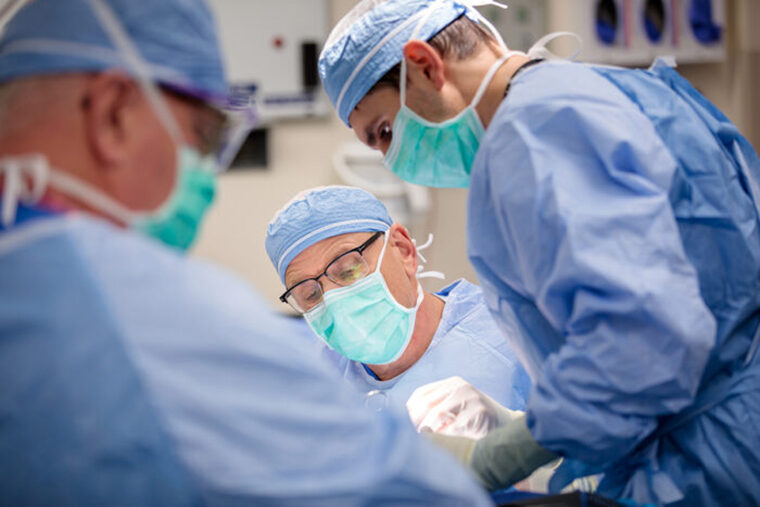Researchers at Washington University School of Medicine in St. Louis have received $10.5 million from the Department of the Army to investigate whether an anti-seizure drug can prevent noise-induced hearing loss when given several hours before exposure to extremely loud noise.
Loud noise that can permanently damage hearing is a common hazard, whether that noise comes from a rock concert, a factory floor or a combat zone.
Researchers will evaluate the anti-seizure drug zonisamide in police officers exposed to gunfire noise at a shooting range, and in patients exposed to the sound of a drill when undergoing skull surgery. Washington University will lead the research and will collaborate with the University of Texas at Dallas, the University of Akron, Ohio, and Gateway Biotechnology in St. Louis.
“Hearing loss is the most common disorder experienced by members of the military, together with tinnitus — ringing in the ears — which is related to hearing damage,” said principal investigator Craig A. Buchman, MD, the Lindburg Professor and head of the Department of Otolaryngology-Head & Neck Surgery at Washington University. “Hearing loss impairs communication, making family life and social situations hard to navigate. It can make military life potentially dangerous and employment after military service very difficult. These are major quality-of-life issues. If we can develop a therapy that prevents noise-induced hearing loss, it could have a big impact.”
In animal models of hearing loss, zonisamide has been shown to protect hearing when given ahead of exposure to loud noise. The drug has a long history of safe use for epilepsy and few side effects, which make it attractive as a preventive therapy for healthy people exposed to loud noise. The drug blocks a number of chemical signals that nerve cells use to communicate.
“Animal studies have shown that this drug can prevent temporary hearing loss from loud noise exposure; anyone who has attended a rock concert is likely familiar with this phenomenon,” Buchman said. “While there is a certain amount of hearing recovery over the next few days or weeks, there is evidence that temporary hearing loss can have long-term consequences. We hope that preventing the short-term loss of hearing also can stop the long-term damage we often see.”
Led by Buchman, Washington University researchers will test the drug in patients who are scheduled to undergo skull surgery for the removal of a tumor, or other health issues. The drilling involved in such a procedure is loud for patients. While patients may not be conscious of the noise when under anesthesia, it can cause hearing loss in the days following surgery. The investigators will randomly assign some patients to take zonisamide and others a placebo about four hours before their procedures. Zonisamide will be tested at two different doses. The patients will undergo various hearing tests before and after surgery.
Collaborators at the University of Akron will test the drug in police officers exposed to the noises of a shooting range, with a similar study design involving randomly assigned groups receiving either zonisamide at one of two possible doses, or a placebo. The participants will take the drug or placebo about four hours before their sessions at the shooting range.
The study also will include a genetic analysis to see if small variations in certain genes have an impact on how effective zonisamide may or may not be for individual patients.
“There are no drugs available for the prevention of noise-induced hearing loss,” Buchman said. “Rather than try to develop a new drug from scratch, which takes tremendous time and resources, our approach repurposes a drug that’s already approved by the Food and Drug Administration for treating seizures. It’s known to have a good safety profile, and it’s already available in generic form. We’re hopeful that this drug will provide a way to protect hearing for people who we know will be exposed to hazardous levels of noise.”
Along with Buchman, the Washington University investigators include Amanda J. Ortmann, assistant professor of otolaryngology; Judith E. Lieu, MD, professor of otolaryngology; and Richard A. Chole, MD, PhD, professor of otolaryngology. Collaborators at other institutions include Colleen G. Le Prell, of the University of Texas at Dallas; Kristine E. Sonstrom Malowski, of the University of Akron, Ohio; and Jianxin Bao, of Gateway Biotechnology, based in St. Louis.
